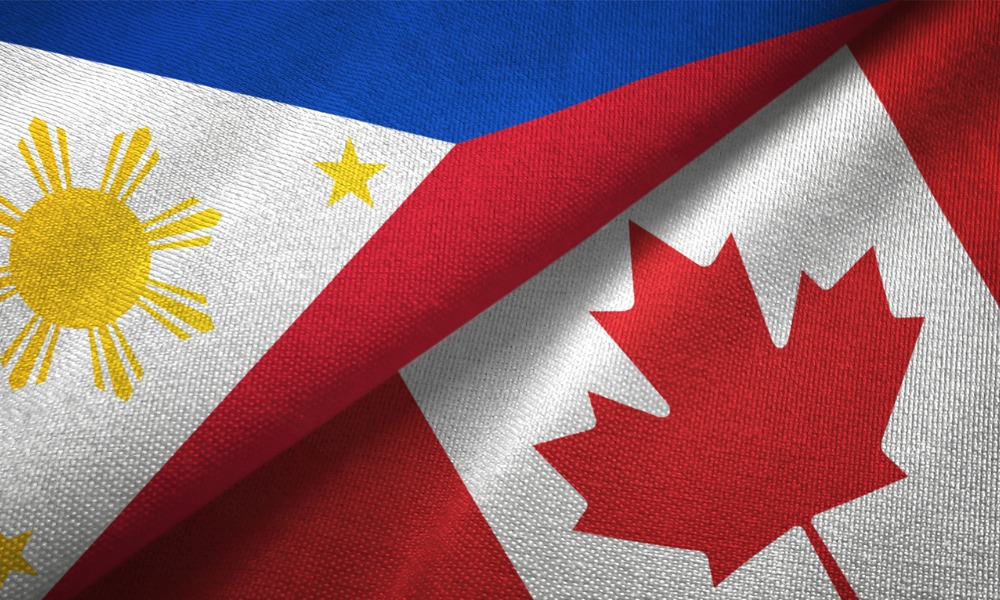What are the ways to immigrate to Canada?
There are numerous easy ways for Filipinos to immigrate to Canada. These would depend on the Filipino’s skills and established connections in Canada, such as family and employment referrals.
Some of the easy ways to immigrate to Canada are through:
- Express Entry
- Provincial Nominee Program (PNP)
- Family or Spousal Sponsorship
- Caregiver programs
To know more about your chances of immigrating to Canada from the Philippines, you may consult with an immigration lawyer in any Canadian province you would like to move to.
Learn more about lawyer for permanent residency (PR) in Canada with this article.
Express Entry
Filipino skilled workers may immigrate to Canada from the Philippines through the Express Entry system managed by the Canadian federal government.
Different eligibilities may apply, depending on the work experience required under Express Entry’s three immigration programs:
- Canadian Experience Class: foreign skilled workers with work experience in Canada for a period of 1 year in the last 3 years
- Federal Skilled Worker Program: foreign skilled workers who do not have previous work experience in Canada but have an accumulated 1 year experience related to the work being applied for in Canada. The work experience must have been acquired in the last 10 years
- Federal Skilled Trades Program: foreign skilled workers who have 2 years of full-time work experience within the last 5 years in an industry considered as a “skilled trade”
Applications, processing of documents, and payment of fees and other costs under Express Entry are available online.
Provincial Nominee Program (PNP)
Under the PNP, foreign nationals are chosen under an “immigration stream” by the specific Canadian province or territory to live and work in that province or territory. This makes it easier for Filipinos to immigrate to a specific province or territory in Canada from the Philippines.
These immigration streams under the PNP may refer to:
- Skilled workers
- Semi-skilled workers
- Students
- Businesspeople
After obtaining the nomination of the preferred province or territory, foreign nationals may then apply through the Non-Express Entry Process found on the website of the specific province or territory or through the Express Entry system found on the federal government’s website.
Here is the story of how Arturo, a welder from the Philippines, moved to Canada under the PNP:
Be sure to find an immigration lawyer near where you want to move to in Canada, it’s a very large country. See this link to find an immigration lawyer in BC or use the dropdown menu on that page to find other provinces.
Family or Spousal Sponsorship
Family reunification under Canada’s Immigration and Refugee Protection Act (IRPA) is translated into sponsorship immigration, which may be divided into family sponsorship and spousal sponsorship.
Under family and spousal sponsorship, a Canadian sponsor must be:
- 18 years old and above
- a citizen of Canada or a permanent resident of Canada
- living in Canada at the time of the spousal sponsorship
Family Sponsorship
Philippine citizens may be sponsored by their Canadian family or relative through family sponsorship. Family members or relatives who may be sponsored are:
- Parents and grandparents
- Children and adopted children
- Dependent brothers or sisters, half brothers or sisters, stepbrothers, or stepsisters
- Orphaned brothers, sisters, nephews, nieces, or grandchildren
Spousal Sponsorship
Canadian citizens or permanent residents may also sponsor their Filipino spouse, conjugal partner, or common-law partner to immigrate to Canada from the Philippines.
The sponsored Filipino must meet any of these eligibilities:
- spouse: must be at least 18 years old and legally married to the sponsoring spouse.
- common-law partner: must be at least 18 years old, legally married to the Canadian sponsor/spouse, and has lived with the Canadian sponsor/spouse for the last 12 months without any extended periods apart.
- conjugal partners: must be at least 18 years old living outside Canada, not legally married but in a common-law relationship with the Canadian sponsor/spouse for at least 1 year, and cannot live with or marry the Canadian sponsor/spouse in the Philippines for valid reasons.
Interested applicants for both the spousal and family sponsorship may check their eligibility and apply for sponsorship online.
Sponsorship Undertaking
Under family and spousal sponsorship, the Canadian sponsor must complete a sponsorship undertaking. This compels the Canadian sponsor to cover all the financial needs of the sponsored Filipino relative or spouse while they are in Canada for a specific period. This undertaking will also oblige the sponsored person to do their part in supporting themselves and the family members who came to Canada with them.
Caregiver programs
Filipino caregivers have numerous options to immigrate to Canada from the Philippines through caregiver programs offered by the federal government. Once you are eligible under any of these programs, you can apply for Canadian permanent residency in the future.
Home Child Care Provider Pilot and Home Support Worker Pilot
The Home Child Care Provider Pilot and Home Support Worker Pilot are pilot programs which allow qualified caregivers to come to Canada. These caregivers can eventually apply for Canadian permanent residency and bring their families to Canada.
These pilot programs are advantageous to Filipino caregivers who have a job offer in Canada or who have past caregiving experience in Canada.
Caregiving experience in Canada refers to full-time work experience as a:
- Home child care provider: caregivers who worked in taking care of children on an ongoing or short-term basis, either in their own homes or in the children's homes. They are either employed by private households or child-care agencies, or are self-employed
- Home support worker: caregivers who provide personal care and companionship for seniors, persons with disabilities, and convalescent persons. A home support worker provides care in their client's residence where the caregiver may also reside. They are employed by home care and support agencies, private households, or are self-employed.
Under these two pilot programs, Filipino caregivers may immigrate to Canada from the Philippines through:
- Gaining experience category: for caregivers who have less than 12 months of qualifying work experience, including caregivers who are currently working or who just recently started to work as a full-time caregiver in Canada
- Direct to permanent residence category: for caregivers who have 12 months or more of qualifying work experience in the last 36 months
Interested caregivers may apply online whether in Canada or outside the country.
How to migrate to Canada from Philippines without a job offer
Immigrating to Canada from the Philippines is also possible without a job offer. Among the easiest ways to do this are through:
- Express Entry
- Provincial Nominee Programs (PNPs)
- Study permit
- Start-up Visa Program
- Family sponsorship
Interested to know more on immigrating to Canada from the Philippines? Ask your questions by commenting below or consulting with the best immigration lawyers in Canada.





